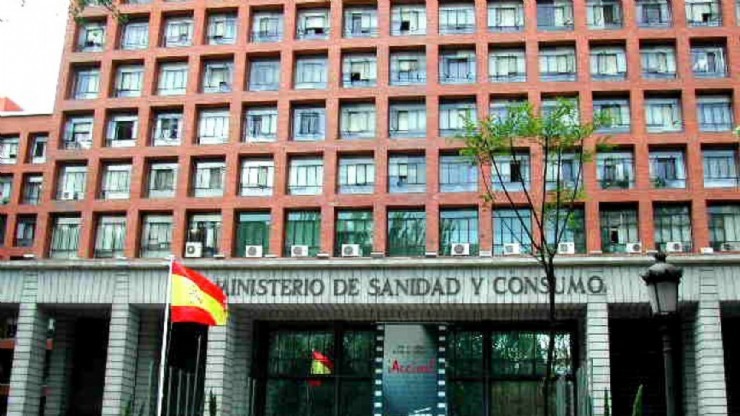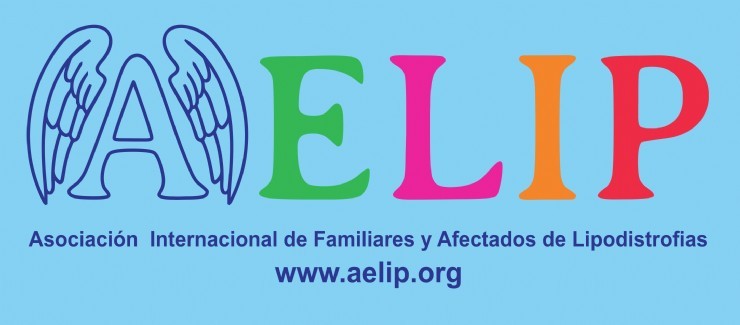Metreleptin, the only approved treatment for patients with lipodystrophies, has not been included in the pharmaceutical provision after the negative resolution of the Interministerial Commission on Prices.
The International Association of Relatives and People Affected by Lipodystrophies (AELIP), which is part of the Spanish Federation of Rare Diseases (FEDER), has expressed its concern and discomfort to the Ministry of Health after learning of the negative decision and urged it to change its mind.
Lipodystrophies are a rare disease that cause the early development of severe metabolic disorders and reduce quality of life and life expectancy, with the average age of death in the most extreme cases being 12 years.
Juan Carrion, President of FEDER, points out that: "This reality is a clear example of the difficulties that exist in accessing treatment in the entire rare disease community, where only 5% of rare diseases have access to treatment".
The International Association of Families and People Affected by Lipodystrophies (AELIP), which is part of the Spanish Federation of Rare Diseases (FEDER), has called on the Ministry of Health to include in the National Health System (SNS) the only available treatment (metreleptin) for patients with this group of rare diseases, the association's media agency told Totana News. AELIP has formally urged the Ministry of Health, through two letters, to reconsider the incorporation of metreleptin in the pharmaceutical provision after learning of the negative resolution of the Interministerial Commission on Prices of Medicines and Health Products not to include this treatment in public funding. Metreleptin is an orphan drug and is currently approved for use in patients with lipodystrophies by the main regulatory agencies in Europe (EMA), the United States (FDA) and Japan (PMDA).
Metreleptin, the only approved treatment for patients with lipodystrophies, has not been included in the pharmaceutical benefit following the negative resolution of the Interministerial Pricing Commission.
The International Association of Relatives and People Affected by Lipodystrophies (AELIP), which is part of the Spanish Federation of Rare Diseases (FEDER), has informed the Ministry of Health of its concern and discomfort after learning of the negative resolution and urged it to change its mind.
Lipodystrophies are a rare disease that cause the early development of severe metabolic disorders and reduce quality of life and life expectancy, with the average age of death in the most extreme cases being 12 years.
Juan Carrion, President of FEDER, points out that: "This reality is a clear example of the difficulties that exist in accessing treatment in the entire rare disease community, where only 5% of rare diseases have access to treatment".
The International Association of Families and People Affected by Lipodystrophies (AELIP), which is part of the Spanish Federation of Rare Diseases (FEDER), has called on the Ministry of Health to include in the National Health System (SNS) the only available treatment (metreleptin) for patients with this group of rare diseases, the association's media agency told Totana News. AELIP has formally urged the Ministry of Health, through two letters, to reconsider the incorporation of metreleptin in the pharmaceutical provision after learning of the negative resolution of the Interministerial Commission on Prices of Medicines and Health Products not to include this treatment in public funding. Metreleptin is an orphan drug and its use in patients with lipodystrophies has been approved by the main regulatory agencies in Europe (EMA), the United States (FDA) and Japan (PMDA).
"We have conveyed to the Ministry of Health our discomfort and concern with the resolution of the Interministerial Commission on Prices of Medicines and Medical Devices. We have asked them to reconsider their resolution and approve the inclusion of this drug in the pharmaceutical provision of the National Health System, guaranteeing fair and equal access to all patients who need it in the different autonomous communities of Spain," says Naca Eulalia Pérez de Tudela, president of AELIP. "Metreleptin is currently the only approved treatment available for patients with this group of rare diseases and, therefore, the only alternative and hope for patients with lipodystrophies," adds the association's president.
The decision of the Interministerial Commission on the Prices of Medicines and Health Products not to include this drug is based on the alleged uncertainty about its clinical benefit. Despite the evidence of recent studies in which it has been demonstrated that this treatment manages to reduce mortality in patients with lipodystrophies by up to 66%, a mortality in which the average age of death is 12 years for patients with generalised congenital lipodystrophy, 23 years for partial acquired lipodystrophy, 28 years for partial familial lipodystrophy and 32 years for generalised acquired lipodystrophy. In this regard, the Interministerial Commission on Prices of Medicines and Health Products points out that the results of the studies are limited, as the design of the studies does not allow the contribution of diet and concomitant treatment to the benefit of the medicine to be known. In addition, the Commission also points to its enormous economic impact as a cause.
However, Raffaele Carraro, an endocrinologist at the Hospital de la Princesa (Madrid), points out that: "I have been following a case of congenital generalised lipodystrophy in an adult for years and I can confirm that the improvements in health status after treatment with metreleptin have been spectacular". Similarly, Elena Recio, a patient diagnosed with Berardinelli Seip Syndrome, a type of lipodystrophy, says: "It took me 23 years to find a treatment that would alleviate the terrible effects that lipodystrophy leaves on your body and mind. That's when I was really born. On 6 December 2002 I had my first injection of metreleptin. The physical and mental improvement I had in just 4 months is indescribable".
Metreleptin is the first and only drug approved for the treatment of lipodystrophies by the major regulatory agencies. According to the European Medicines Agency (EMA), metreleptin rigorously meets the criteria for orphan drug status: the product is intended for an indication with a prevalence not exceeding 5-10,000 people in the European Union; the disease is life-threatening, severely debilitating or a severe and chronic condition; and there is no satisfactory method of diagnosis, prevention or treatment authorised in the European Union to combat the disease.
"This reality is a clear example of the difficulties that exist in accessing treatment in the entire rare disease community, where only 5% of rare diseases have a treatment," says Juan Carrión, President of FEDER. "It is of even greater and vital importance that families and people living with pathologies have the possibility to access medicines that improve their quality of life, and have full access to them in equity and regardless of the autonomous community of residence," adds the president of FEDER.
If this request from AELIP is not accepted, the possibility of access to the medicine will be limited and unequal (depending on each autonomous community) and, in addition, each acceptance process takes time that many patients with the disease do not have.
ABOUT LIPODYSTROPHIES
Lipodystrophies are ultra-rare diseases with a worldwide prevalence of 0.2-1.0 cases/million for the generalised form. They are a group of congenital or acquired disorders associated with the loss of adipose tissue. The lack of subcutaneous adipose tissue leads to a decrease in the level of leptin in the body and the ability to store lipids, so that lipids accumulate abnormally in other organs. The lack of leptin leads to the early development of severe metabolic disorders.
Moreover, in Spain there is a clinical reference centre for lipodystrophies officially recognised by the Ministry of Health. The Hospital Clínico Universitario de Santiago de Compostela, and in particular its Endocrinology and Nutrition Service (316 patients have been diagnosed with lipodystrophy, of which 23 patients with generalised lipodystrophy, 238 with partial lipodystrophy, and the rest with other rarer subtypes (progerias, autoinflammatory syndromes, multiple lipomatosis, etc.).
About AELIP
The International Association of Relatives and People Affected by Lipodystrophies (AELIP) was created in Totana on 19 April 2012 and registered in the National Register of Associations of the Ministry of Interior with the registration number 600744 on 31/08/2012, with CIF G 73753717.
It was declared a public utility entity on 15 April 2016 and is made up of parents, family members, professionals from all areas with the aim of creating spaces for exchange and coexistence between family members and people diagnosed with lipodystrophies. It also seeks to raise awareness of the public health problems caused by lipodystrophies, which are infrequent due to their low prevalence.

